-
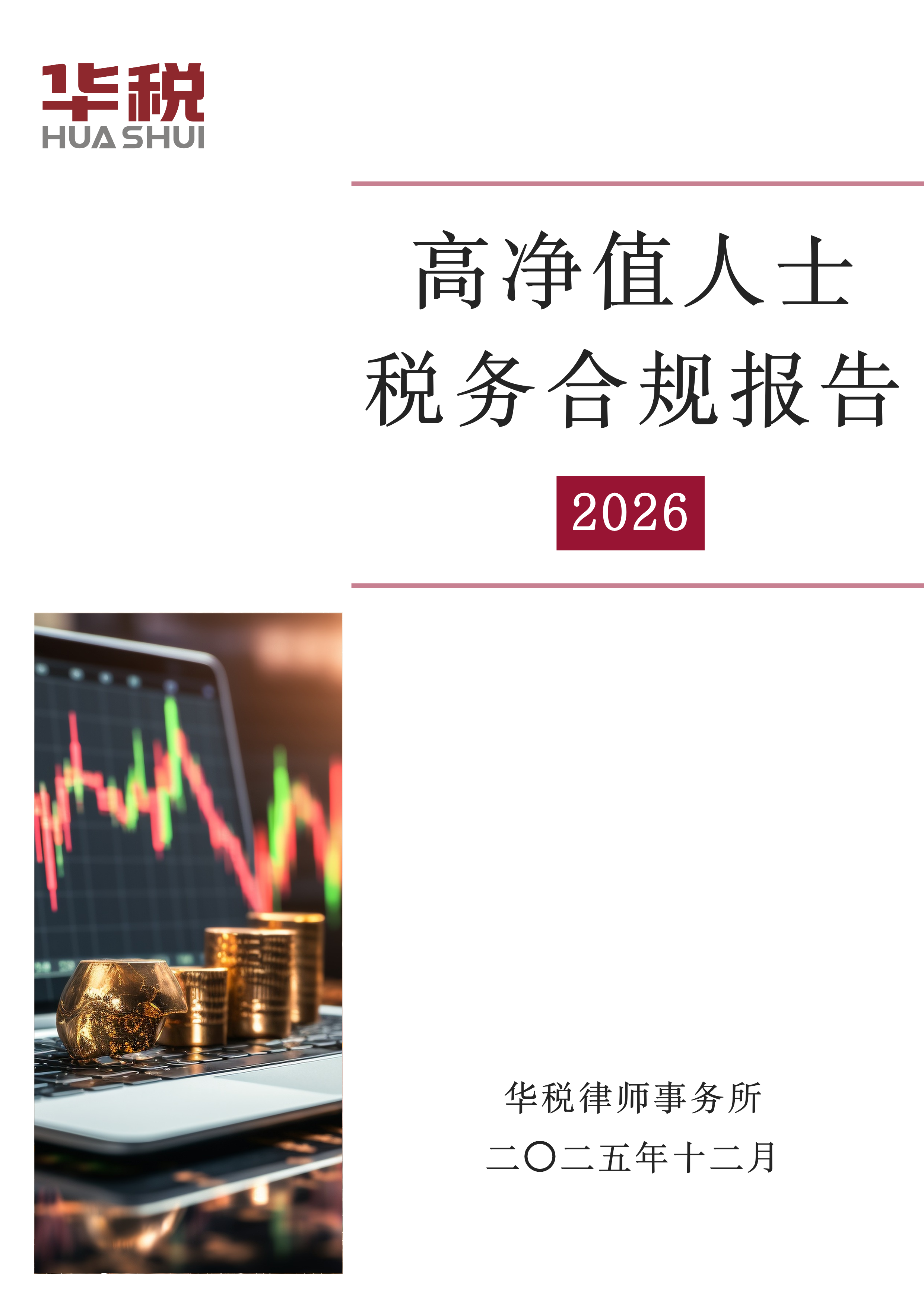
High-Net-Worth Individuals Tax Compliance Report (2026)Preface
High-net-worth individuals generally refer to individuals whose wealth or income reaches a certain threshold. Monitoring and managing high-net-worth individuals has always been a key focus in personal income tax administration. The main subjects of regulation include the transfer of real estate and equity, receipt of dividends, operation of large-scale sole proprietorships and partnerships, and receipt of overseas income. However, in practice, tax administration effectiveness has been somewhat insufficient, with relatively few disclosed cases, and most case sources coming from whistleblowers or civil disputes. The primary reason is that personal income tax-related information often involves trade secrets and personal privacy, making it difficult and challenging for tax authorities to obtain; information asymmetry provides fertile ground for high-net-worth individuals to evade or avoid taxes. Studies show that the tax burden borne by high-net-worth individuals is extremely mismatched with their wealth scale, with actual tax rates being significantly lower than expected.
Dec. 29, 2025, 11:34 a.m.
2114Views
-
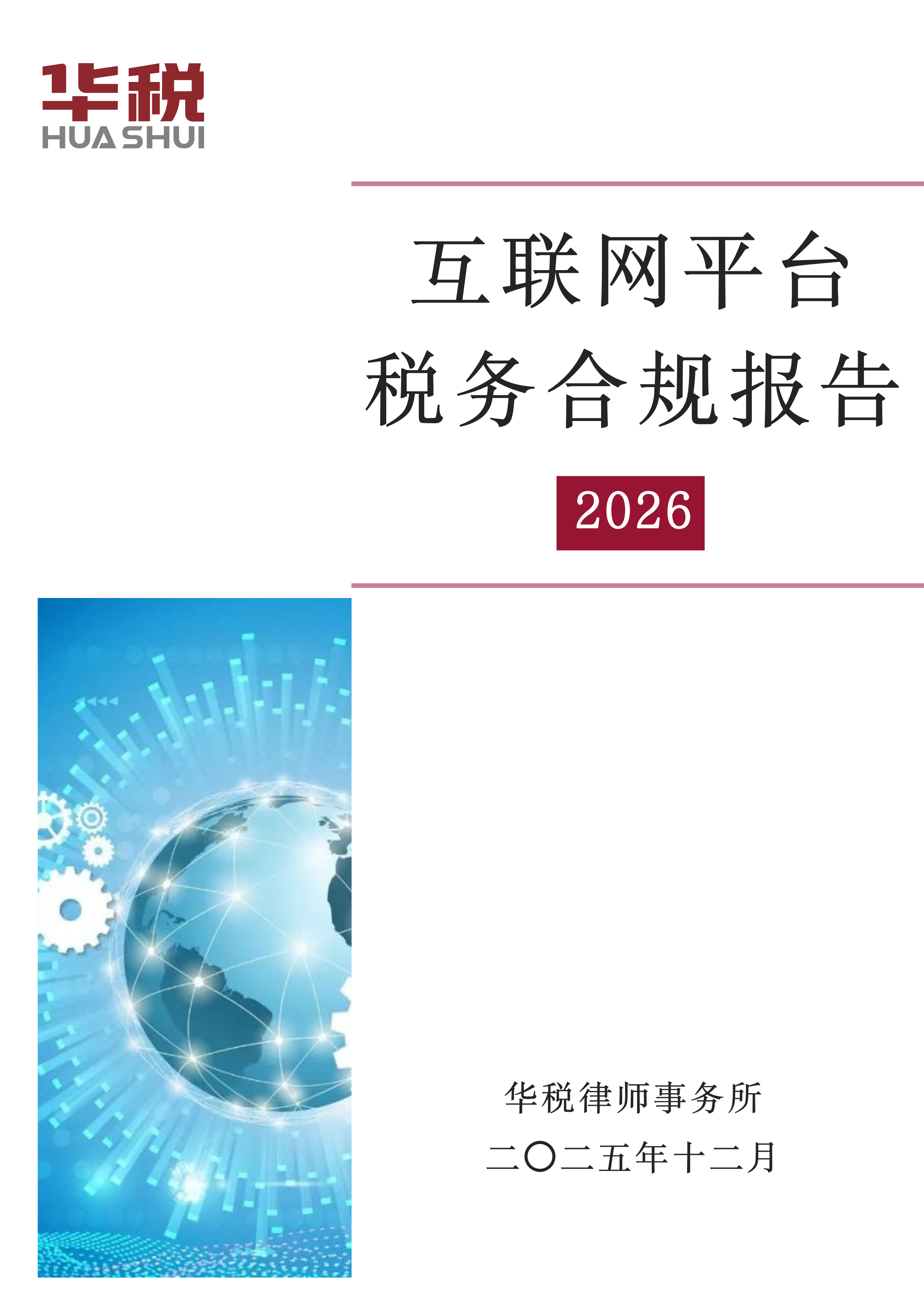
2026 Internet Platform Industry Tax Compliance Report
Since the 2022 Central Economic Work Conference explicitly called for "vigorously developing the digital economy, enhancing the level of routine regulation, and supporting platform enterprises in playing a greater role in leading development, creating jobs, and international competition," the in-depth development of internet technology has further cemented the platform economy's role as a significant force driving social employment, optimizing resource allocation, and stimulating market vitality. Among its various forms, flexible employment and online freight transportation, as two typical domains of the platform economy, are playing an increasingly prominent role in meeting corporate flexible demands and promoting logistics efficiency.
Dec. 26, 2025, 11:50 a.m.
1779Views
-

Tax Compliance Report for the Petrochemical Industry (2026)
As an important pillar industry of the national economy, the tax compliance of the petrochemical industry has attracted considerable attention amid an increasingly stringent regulatory environment. Currently, China's tax collection and administration reform is advancing in depth. At the central level, great focus is placed on the supervision of consumption tax on refined oil products. Multiple departments have jointly issued supporting policies to establish a full-chain supervision system, and digital means are used to deepen the application of "governing tax collection by data." The crackdown on tax-related violations and crimes is being continuously intensified, putting petrochemical enterprises at risk of a new round of systemic tax-related risk escalation.
Dec. 22, 2025, 11:46 a.m.
1637Views
-

Study on Tax Dispute Resolution in Corporate Bankruptcy (2025)
With the continuous adjustment of China's economic structure and the increasingly fierce competition in the market, the business risks and financial pressure faced by enterprises are increasing day by day, and the number of bankruptcy cases is on the rise. The issue of tax disputes in bankruptcy proceedings has become more and more prominent, and has become one of the key factors restricting the smooth progress of bankruptcy proceedings.
May 9, 2025, 10:28 a.m.
2450Views
-

Tax Compliance Report for High Net Worth Individuals (2025)
Accompanied by the rapid development of China's economy, the growth of per capita disposable income of China's residents has entered the fast lane, and at the same time, China's Gini coefficient has risen instead of falling. It is generally believed that when the Gini coefficient reaches above 0.5, it indicates a wide income gap. According to the National Bureau of Statistics data, in 2022, China's Gini coefficient has reached as high as 0.467, which reflects the large gap between the rich and the poor of China's residents. From a tax perspective, the current personal income tax system fails to give full play to the regulatory role of income redistribution, and there is insufficient regulation of personal income tax for high net worth individuals. The 20th CPC Central Committee pointed out that it is necessary to “improve the personal income tax system, standardize the order of income distribution, regulate the mechanism of wealth accumulation, protect legitimate income, regulate excessive income
Jan. 17, 2025, 1:52 p.m.
5886Views
-
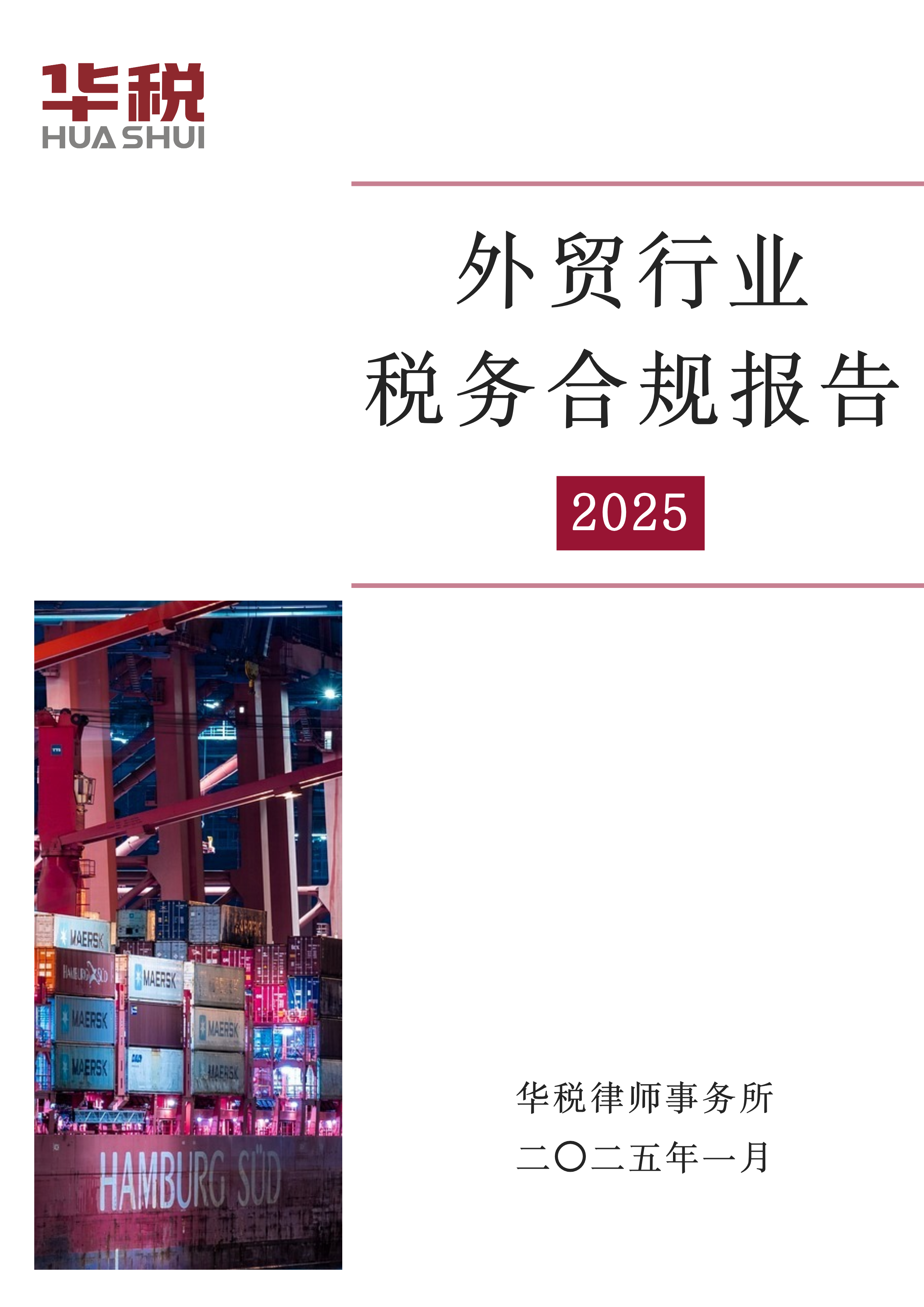
Foreign Trade Industry Tax Compliance Report (2025)
The export tax rebate system constitutes a tax legal framework adopted by a nation or region. Its central tenet revolves around the refund or exemption of indirect taxes that goods have incurred during domestic production and circulation upon their exportation. The establishment of this system is designed to enable exported goods to penetrate the international market at a tax-free price, thereby enhancing their competitive edge in the global arena. Concurrently, it averts the double taxation of goods in cross-border transactions, thus fostering the growth of export trade. In recent years, the state has been continuously refining the export tax rebate process, resulting in a significant reduction in processing time and a substantial enhancement in efficiency. Moreover, the progressive implementation of paperless customs clearance, the reform of the foreign exchange underwriting system, and the ongoing improvement of facilitation services for cross-border trade renminbi settlement have all provided robust support for export enterprises to generate foreign exchange, further propelling the prosperity of export trade.
Jan. 15, 2025, 2:31 p.m.
3839Views
-
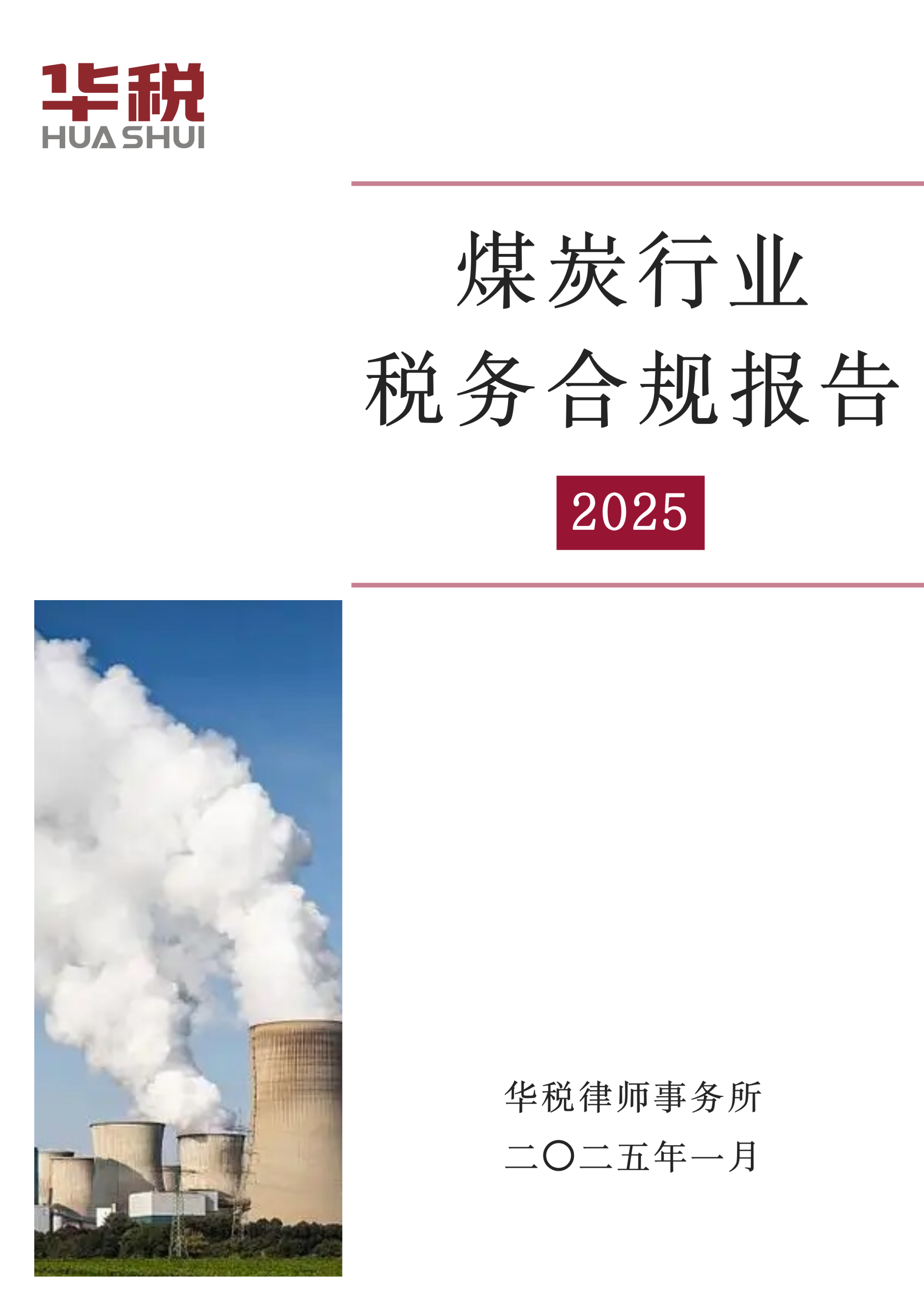
Coal Industry Tax Compliance Report(2025)
In 2024, with the gradual release of new production capacity, China's coal production maintained growth and further concentrated in Jinshan, Shanxi-Menggui and Xinjiang regions, with consumption accounting for more than 50% of the primary energy consumption structure, and the coal industry still occupies an important strategic position in the national economy. At the same time, due to the lack of invoices at the source, excessive tax burden and other problems, the coal industry is also a high incidence of false invoicing, tax evasion administrative and criminal cases.
Jan. 13, 2025, 10:09 a.m.
3146Views
-
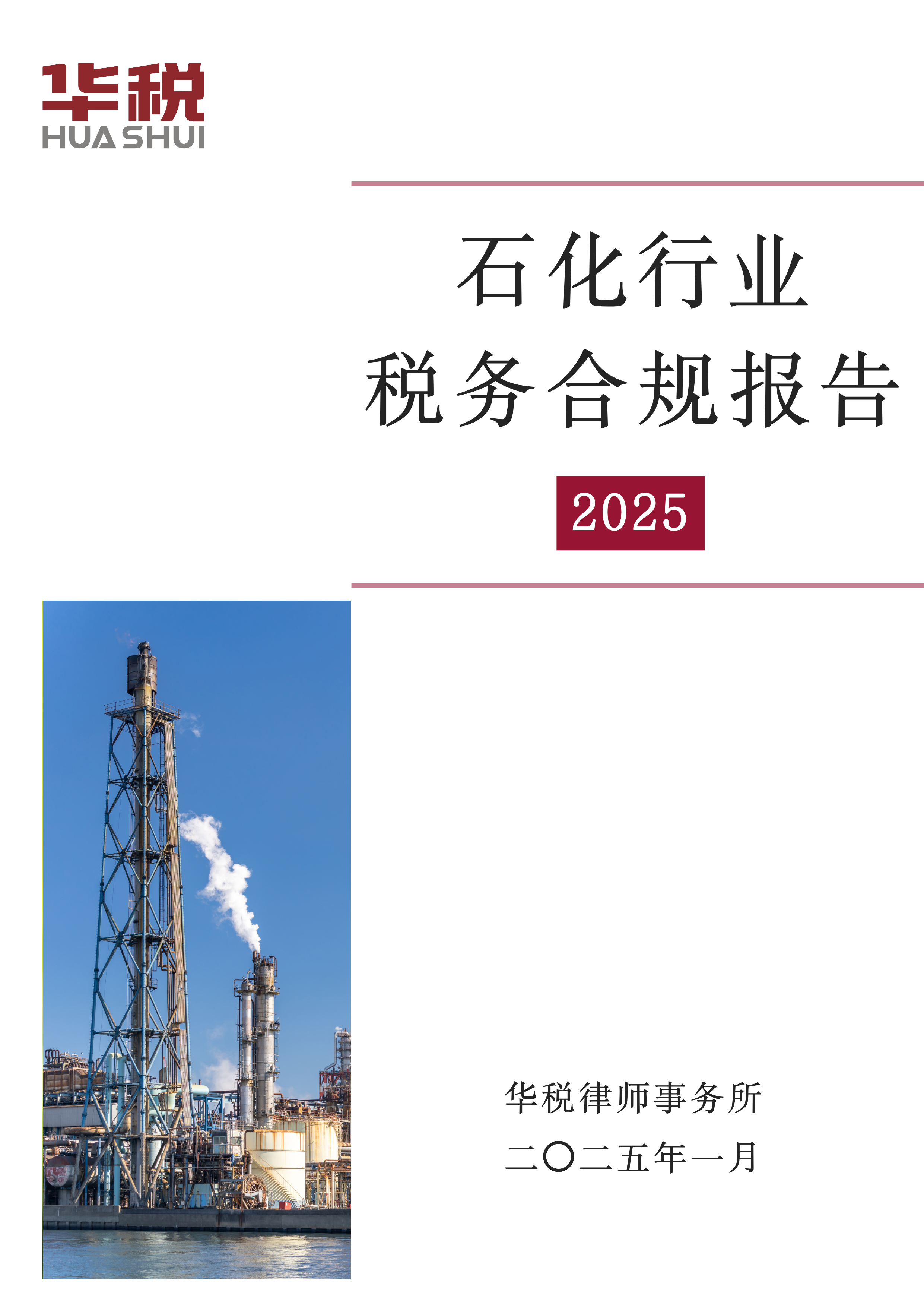
Petrochemical Industry Tax Compliance Report (2025)
The petrochemical industry, as an important pillar industry of the national economy, has always been concerned about its tax compliance issues. At present, the working mechanism of the eight departments of the country to jointly combat tax-related crimes has been implemented in detail, digital electronic invoices have been promoted and applied nationwide, the reform of tax collection and management has been deepening, and the new round of tax-related risks of enterprises has been fully escalated.On 18 March 2024, the Supreme People's Court and the Supreme People's Procuratorate jointly formulated and issued the ‘Interpretation of Issues Concerning Several Issues on the Application of Law in Handling Criminal Cases of Endangering Tax Collection and Management’. The Judicial Interpretation came into effect on 20 March 2024. The promulgation of the judicial interpretation by the Supreme Law and the Supreme Prosecutor is both a crisis and a new opportunity for the majority of petrochemical enterprises. The demarcation between crimes and non-crimes, and between this crime and that of the other has triggered extensive discussions, especially the application of the crimes of false opening of VAT invoices, illegal purchase of VAT invoices, illegal sale of VAT invoices, and tax evasion. Tax compliance has become a core element for the steady progress and sustainable development of enterprises, and petrochemical enterprises should effectively implement tax compliance in the whole process of corporate governance.
The ‘Petrochemical Industry Tax Compliance Report (2025)’ is a legal research report based on Hwuason Law Firm's in-depth observation of the petrochemical industry for many years and the profound summary of its experience in representing petrochemical industry tax-related cases in 2024. The report aims to reveal the current situation of petrochemical industry's tax-related cases and investigation trends, analyze the major changes in the petrochemical industry's tax-related risks, and put forward the defence strategies and compliance recommendations, with a view to Provide useful guidance for petrochemical enterprises in preventing and resolving tax-related risks.Jan. 10, 2025, 3 p.m.
2548Views
-

Investment Promotion Tax Compliance Report(2025)
Generally speaking, investment promotion refers to the activities of local governments in using external resources to promote regional economic development, which is of great significance in promoting local employment, optimizing local industrial structure and expanding the scale of economic development. For a long time, giving tax concessions and financial rebates to investing enterprises is a common way for local governments to attract investment, and this kind of financial and tax incentives can help alleviate the pressure on the capital turnover of investing enterprises, reduce operating costs, stimulate development vitality, and boost the development of the regional economy.
Jan. 8, 2025, 1:42 p.m.
5314Views
-

Flexible Labor Tax Compliance Report (2025)
Employment is the greatest livelihood. Against the backdrop of a booming sharing economy and with the support of Internet technology, flexible labor enterprises can more efficiently break down the information barrier between employers and talent resources, playing an important role in promoting employment and safeguarding people's livelihoods. In terms of taxation, flexible labor enterprises not only help employers obtain compliant invoices and reduce their tax costs, but also withhold and pay personal taxes on behalf of natural persons, preventing the spillover of personal tax risks, which is favored by employers and is conducive to overall tax compliance.
Jan. 6, 2025, 2:56 p.m.
4563Views





